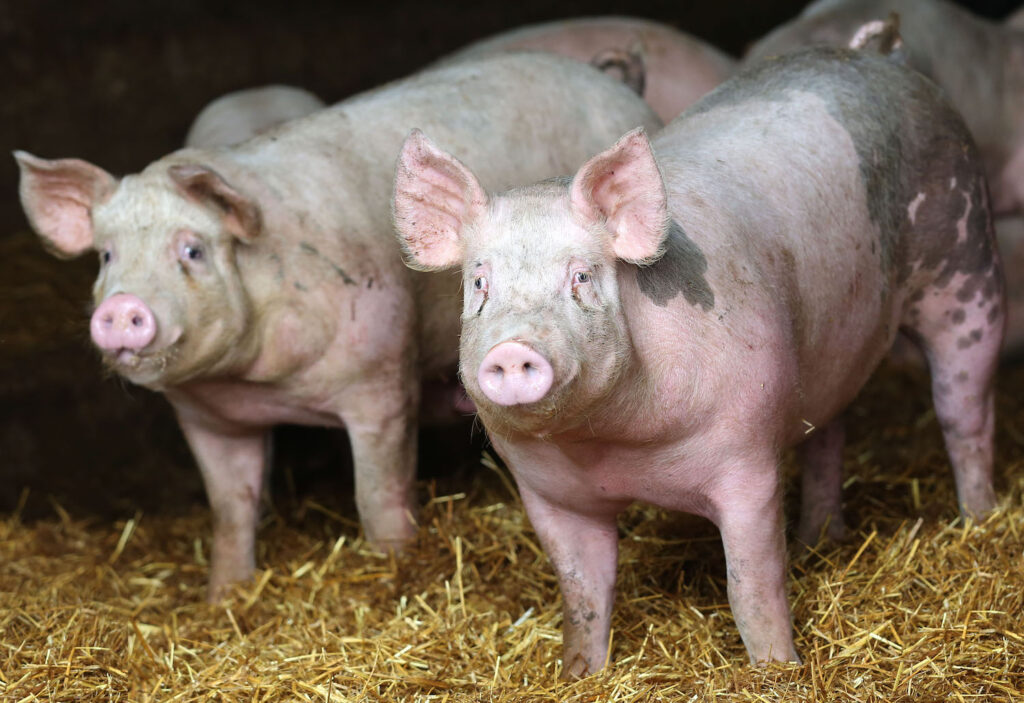Pig trials show botanic-based product offers feed efficiency gains
24th December 2022
Trials on more than 4,000 pigs on units in Spain and the UK showed that cost-effective improvements in feed efficiency can be achieved where a natural botanic-based feed product is added to diets, according to Cargill UK.

Finisher pigs reared on diets that included the feed product ConverMax demonstrated improved growth rates despite lower feed intake, according to trial results.
This led to improved feed conversion rates, lower overall rearing costs, and higher margins per finished pig compared with the control groups.
Trials were carried out in both countries, between September and November 2022, and compared the performance of pigs in the second part of the grower-finisher period.
Reductions in FCR and feed intake
In the UK trial, nearly 2,000 pigs were split into pens of 33 pigs, with 31 pens for each treatment. Pigs received the same acclimatisation diet for the first 25 days, then either a standard finisher control diet or the finisher diet with ConverMax at a rate of 2kg per tonne of feed from approximately 65kg liveweight.
Feed use, liveweight gain, mortality and slaughter data were recorded for each group. The data revealed a significant reduction in feed conversion rate (FCR) in these grower finisher pigs by 0.09, from 2.77 to 2.68, when ConverMax was fed.
The data also highlighted that average daily feed intake was lower in the pigs fed the additive, and mortality was reduced, with the control group recording 4.7% mortality compared with 2.2% in the treatment group.
“We wanted to demonstrate that this feed product could reduce feed conversion rates in finisher pigs by 0.1 points in UK on-farm conditions,” says Cargill’s UK pig nutritionist Maisie Lord.
“We achieved this and, using feed costs from September 2022 and including the cost of the feed product, an improvement in margin per finished pig of £3.54 was achieved where the feed product was included.”
Similar results in Spain
Results from the UK trial were similar to those seen in Spain where 2,026 pigs were compared during a trial of two finishing diets, fed from approximately 45kg liveweight onwards.
Taking account of mortality in the two treatments, the Spanish results showed an improvement in feed conversion rate of 0.1 where ConverMax was included in the diet. Based on feed costs at the time of the trial, this equated to a saving in feed costs of £2.03 per pig where this feed product was included.
“Significant savings” on feed costs
“These recent trials support earlier trials with ConverMax,” adds Ms Lord. “We are consistently seeing an average 0.1 reduction in FCR. But where FCR is higher to begin with, this reduction in FCR can be as much as 0.3. This represents a significant saving in feed costs per pig, and cost saving is even more significant with higher feed prices.”
“Also, where the feed product is included in diets, pigs appear to have less erratic feed intake patterns. We find that when feed intakes are variable animals will consume more overall, and this has a negative impact on feed efficiency,” says Ms Lord.
ConverMax has been designed to improve FCR in grower and finisher pigs by supporting more efficient energy utilisation and ensuring more nutrients from the feed are used for growth.
“As well as improving overall herd efficiency, improvements in feed utilisation are an obvious driver for reductions in rearing costs, and in supporting improved sustainability.”
ConverMax is already used extensively in Europe and across the UK’s finisher herd. It is fed at a rate of 2kg/tonne in grower and finisher diets through to slaughter.
